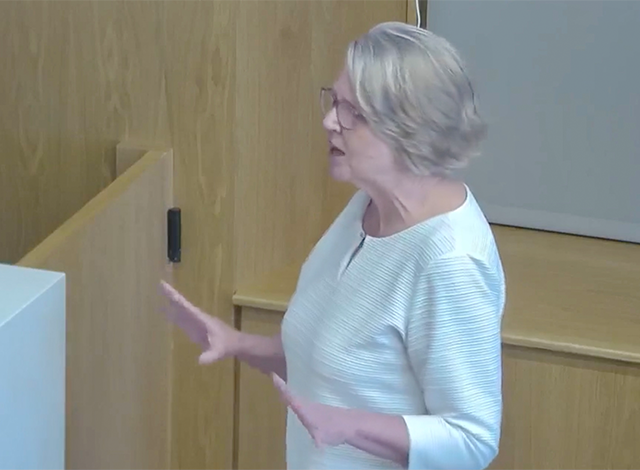Lanark County Community Justice outlines impact of restorative practices
LAURIE WEIR
A local group promoting restorative justice shared its mission with Smiths Falls council Monday, April 28, during the regular committee of the whole, highlighting alternatives to the traditional criminal justice system that save time, reduce costs, and better serve both victims and offenders.
Tamara Derkzen and Marilyn Bird of Lanark County Community Justice (LCCJ) presented the program, which focuses on resolving criminal charges through dialogue, accountability, and legally binding reconciliation agreements—rather than court proceedings.
Unlike the traditional system, which costs an estimated $20,000 per case and takes an average of 150 days, the LCCJ process costs about $2,000 and typically wraps up in 82 days. It also boasts a dramatically lower recidivism rate: just 5 to 8 per cent compared to 30 per cent in the broader justice system.
“Restorative justice allows victims to speak directly about the impact of the crime, while helping offenders take responsibility, make amends, and avoid a criminal record,” said Derkzen.
Programs include court diversion, restorative parenting support, and conflict-resolution training for educators. Forums are led by trained facilitators and can involve police referrals, risk assessments, and community-based agreements with follow-up support.
Mayor Shawn Pankow called himself “a big believer” in the process and asked whether the program primarily serves victims of property crime or personal offences. Bird replied that it includes both, and emphasized the care taken when working with assault cases.
“We take a lot of time to ensure victims feel safe and comfortable throughout the process,” she said.
Bird also noted that restorative justice was among the recommendations that emerged from the 2022 Renfrew County Inquest, which examined the triple femicide of Carol Culleton, Anastasia Kuzyk and Nathalie Warmerdam. Recommendation No. 9 from the inquest calls for exploring restorative and community-based approaches in appropriate cases of intimate partner violence.
“We’re working with Lanark County Interval House and Community Support to open the door and explore how this could look in practice,” Bird said.
Restorative justice has also been used in federal penitentiaries, she added. “It can be very healing for all people involved.”
In Smiths Falls last year, LCCJ supported 13 youth and five adult offenders through its diversion programs. The most common offences included theft, mischief and assault, with a recent increase in cases involving racism and homophobia.
Derkzen encouraged residents to get involved—by volunteering, joining the board, offering space for forums, or simply asking for restorative justice when harm occurs.
LCCJ’s work is rooted in the belief that safer, stronger communities are built not by punishment, but by repairing relationships and preventing future harm.




